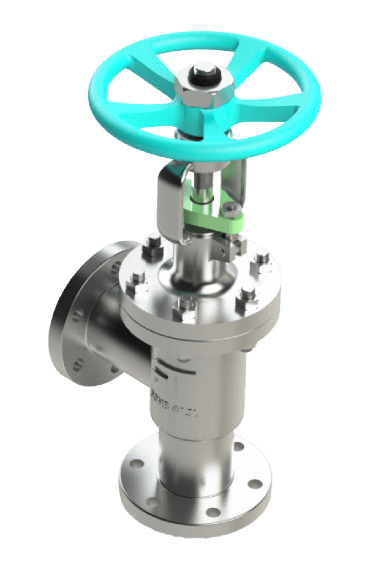Exploring the Different Types of Forged Materials Used in Globe Valve Manufacturing
Globe valves are essential components in various industries, facilitating the regulation of fluid flow within pipelines. One crucial aspect of globe valve manufacturing is the selection of materials, as it directly impacts the valve's performance, durability, and compatibility with different operating conditions. In this article, we delve into the diverse range of forged materials used in the production of globe valves, highlighting their unique properties and applications.
Understanding Forged Materials:
Forging is a manufacturing process that involves shaping metal through the application of compressive force. This method enhances the material's strength, toughness, and resistance to fatigue, making it an ideal choice for critical components like globe valves. The selection of forged materials depends on factors such as the operating environment, fluid characteristics, and regulatory requirements.
 |
| Stainless Steel Angle Globe Valve |
Stainless Steel:
Stainless steel is a popular choice for globe valve manufacturing due to its excellent corrosion resistance, high strength, and durability. Common grades used include 304, 316, and 316L stainless steel, each offering specific advantages based on the application. For instance, 316 stainless steel is preferred for environments with elevated temperatures or corrosive fluids, such as chemical processing plants and offshore oil rigs.
Carbon Steel:
Carbon steel is another widely used material in globe valve fabrication, valued for its strength, toughness, and affordability. It is suitable for a broad range of applications, including power generation, water treatment, and HVAC systems. Carbon steel globe valves are available in various grades, such as ASTM A105 and ASTM A216, with each grade tailored to meet specific industry standards and performance requirements.
Alloy Steel:
Alloy steel offers enhanced mechanical properties compared to carbon steel, making it suitable for demanding operating conditions. By alloying elements such as chromium, molybdenum, and nickel, manufacturers can customize the material to withstand high temperatures, pressure, and corrosion. Alloy steel globe valves are commonly used in industries such as petrochemical, refining, and aerospace, where reliability and performance are paramount.
Duplex and Super Duplex Stainless Steel:
Duplex and super duplex stainless steels are known for their exceptional corrosion resistance and strength, making them ideal for harsh environments. These materials contain a balanced microstructure of austenite and ferrite phases, offering superior pitting and crevice corrosion resistance. Globe valves made from duplex and super duplex stainless steel are commonly employed in offshore oil and gas production, chemical processing, and desalination plants.
Nickel Alloys:
Nickel alloys exhibit excellent resistance to corrosion, oxidation, and high temperatures, making them suitable for extreme service conditions. Materials such as Inconel, Monel, and Hastelloy are commonly used in globe valve construction where exposure to corrosive fluids or environments is a concern. These valves find applications in chemical processing, pharmaceutical, and aerospace industries, where reliability and performance are critical.
Titanium:
Titanium is renowned for its exceptional strength-to-weight ratio, corrosion resistance, and biocompatibility, making it suitable for a wide range of industrial and medical applications. In globe valve manufacturing, titanium is used in environments where superior corrosion resistance and lightweight construction are required. Aerospace, marine, and medical sectors often utilize titanium globe valves for their exceptional performance and longevity.
Conclusion:
The selection of forged materials plays a vital role in determining the performance, reliability, and longevity of globe valves in various industrial applications. From stainless steel and carbon steel to exotic alloys like duplex stainless steel and nickel alloys, each material offers unique properties suited to specific operating conditions. By understanding the characteristics of different forged materials, engineers and manufacturers can design globe valves that meet the demanding requirements of modern industries while ensuring safety, efficiency, and sustainability.




No comments:
Post a Comment